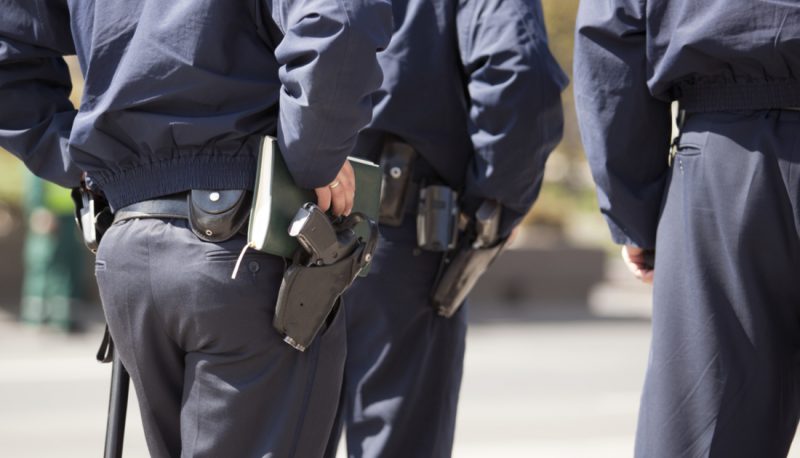“Confirmed Judges, Confirmed Fears” is a blog series documenting the harmful impact of President Trump’s judges on Americans’ rights and liberties.
Michael Easley alleged that Riverside, CA police officer Silvio Macias used unconstitutionally excessive force by shooting him when he was running away. He sued Macias, the chief of police, and the city. In April of 2019, Trump Ninth Circuit judge Mark Bennett would have dismissed Easley’s case based on a legal argument that the defendants had already conceded, and based on disputed facts that are within the jury’s province to decide. The case is Easley v. City of Riverside.
Police officers, in what a lower court called a “high-crime area,” saw a car with dark-tinted windows and shone their flashlights into it as they drove past. They then proceeded to follow the car, which turned and sped away. The police pursued with their lights and sirens, and the car eventually stopped, at which point the passenger—Easley—got out and ran. Macias’ partner yelled that he had a gun. As Easley was running away, he reached across his body with his left hand, removed a gun from his right pocket, and hurled it away. The parties disagreed on what happened next. Macias said he fired within two seconds, thinking that Easley was grabbing his gun and turning around to fire at him. In contrast, Easley testified that the officer waited for up to four seconds after the gun was thrown before shooting him in the back and arms.
Under longtime Supreme Court precedent involving “qualified immunity,” a law enforcement official who is accused of using unconstitutionally excessive force can’t be sued in their individual capacity unless they acted in a way that was clearly and indisputably unconstitutional at the time they did it. Cases are frequently dismissed on this basis via a pretrial procedure called summary judgment: Even accepting the plaintiff’s version of what happened, the judge rules that the official can’t be sued because they have qualified immunity.
As applied to this case, Macias would be immune from suit if he had reasonably believed Easley posed a threat to his (or his partner’s) life.
Before the trial, the parties made several compromises leading to a package deal. As part of the resulting pretrial joint stipulation, the officer agreed not to seek summary judgment on the basis of qualified immunity. Nevertheless, at a pretrial hearing, the district court judge on his own accord brought it up. He had the plaintiff, defendant, and witnesses testify in person so he could ascertain their credibility. He then made his own determination of the facts of the case and ruled that, under those facts, Macias had qualified immunity and could not be sued. A divided three-judge panel of the Ninth Circuit upheld the dismissal.
In April 2019, an 11-judge en banc panel of the Ninth Circuit reversed the dismissal and remanded the case for trial. The court stressed that judges are not allowed to resolve material factual disagreements during summary judgment, and there was just such a disagreement over whether the officer had waited as long as four seconds after the gun was thrown before firing. That length of time could affect whether he could reasonably have thought that Easley was going to shoot him. Moreover, the en banc panel criticized the district judge for going against the joint stipulation that all the parties had agreed to be bound by.
Only two judges dissented, one of them being Trump judge Mark Bennett. He wrote that the en banc panel should have simply ignored the trial court’s actions because the appeals court is supposed to consider a qualified immunity case de novo (i.e., from scratch). He was not troubled that the trial court had acted against the parties’ joint stipulation, nor did he express concern that the trial judge had engaged in fact-finding at the summary judgment stage.
In fact, Bennett went further by making a legal judgment based on contested issues of fact. Although he claimed he was viewing the facts in the light most favorable to Easley, he made assumptions about what happened that a jury could very well have disagreed with.
There are simply too many unknowns in this case to allow a judge to dismiss it before trial on the issue of qualified immunity.

